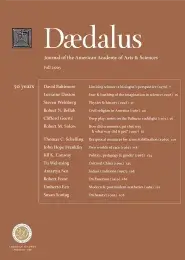Reciprocal measures for arms stablization (1960)
There has been a widespread change in the thinking on arms control in the last year or so. Much of it is due to the focus of attention on “measures to safeguard against surprise attack” (to use the official terminology). Although this subject is still listed anachronistically under “disarmament,” it is differently oriented. It assumes deterrence as the keystone of our security policy, and tries to improve it. It accepts a retaliatory capability as something to be enhanced, not degraded–something to be made more secure, less accident-prone, less in need of striking quickly to avoid its own destruction, less capable of gaining advantage from a sudden attack of its own. An anomaly of this approach to arms control is that it does not necessarily involve “disarmament” in the literal sense.
Another anomaly, which rather shakes the disarmament tradition, is that weapons may be more stabilizing and less aggressive if they are capable of civilian reprisal rather than of military engagement. A standoff between two retaliatory forces is in some ways equivalent to an exchange of hostages; and “inhumane” weapons, capable of inflicting damage but not able to go after the enemy’s strategic forces, acquire virtue because of their clearly deterrent function and the lack of temptation they give either side to strike first.
More important, though, is the fact that schemes to avert surprise attack are manifestly compatible with a national military policy, not a renunciation of it. They emphasize the possibility that one can simultaneously think seriously and sympathetically about our military posture and about collaborating with our enemies to improve it. To propose, as does the notion of “measures to safeguard against surprise attack,” that military cooperation with potential enemies may offer opportunities to improve our military posture, opens a new field for imaginative scientific and military thinking, and may eventually enlist the support of the military services themselves.
. . .
